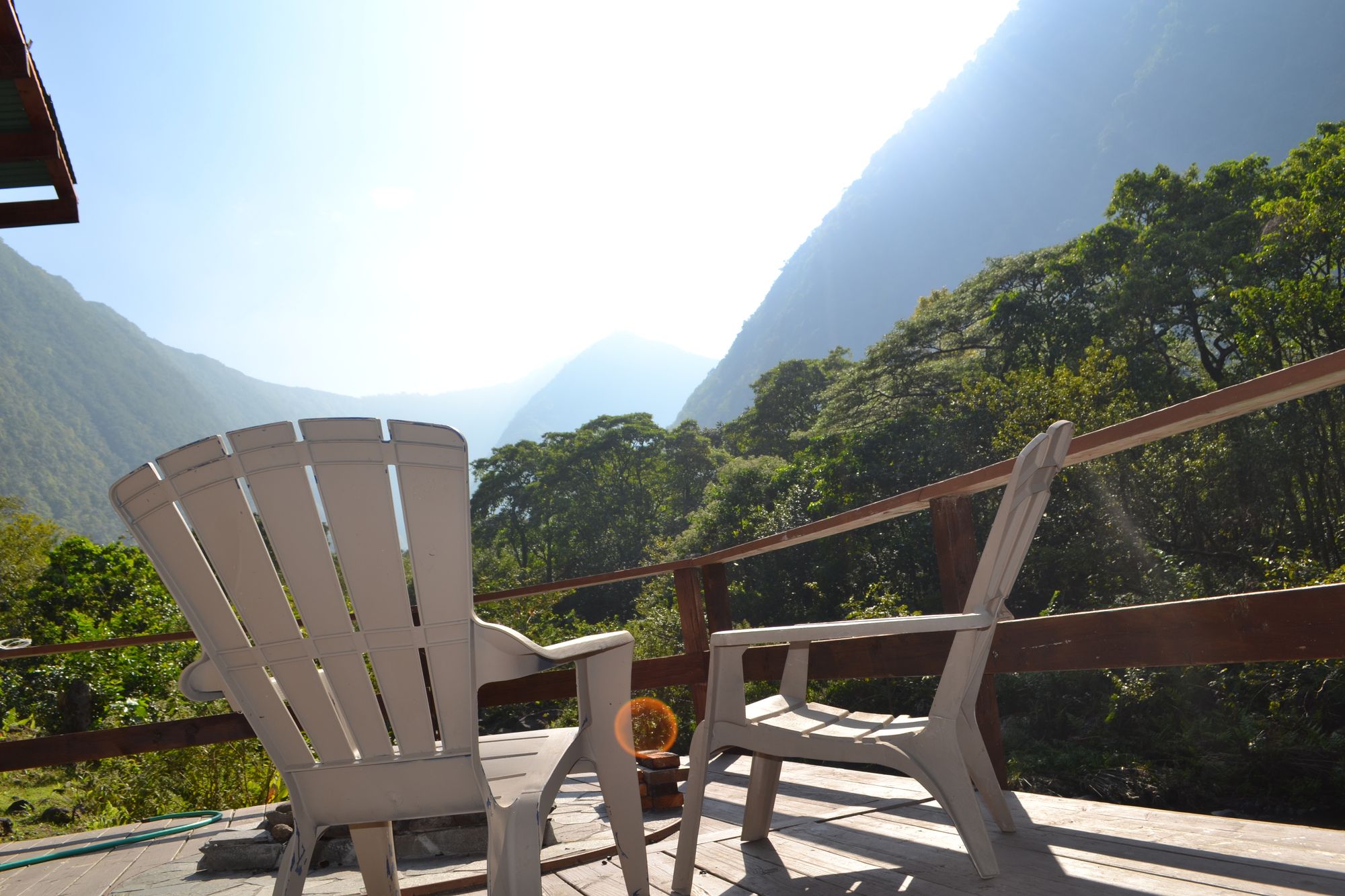Why "Rewilding"?

Our main goal in doing the things we're doing is to engage others in a process of ongoing improvement.
I have "joked" that if the farm doesn't work out, no one should worry about us because we'll be quite happy running off into the woods.
Some of you probably realize this isn't much of a joke.
We spent months debating whether or not to pull the trigger on the farm. The alternative? Moving to a cabin in the wilderness.
Interestingly, my two favorite books I read during this time were "The Good Life" and "We Took To The Woods".
Chesley and I have disappeared into the wilderness before, aided and abetted by many of you reading this.
We had an indefinite arrangement in paradise, a rainforest in a Hawaiian jungle with a river leading to a black sand beach backed by a forest of tall pines. This was Waipio Valley, the Valley of the Kings.
We came back sooner than we planned. This was not because the idea had proved to be a failure. It was a resounding success.
We came back because of love and family and a desire to make a go of engaging other people in a journey to greater health and happiness.
We came back to disrupt the "slow descent of accepted thought to an inactive commonplace" that we saw so many people following.
We came back to start a family and to build community.
This has been a process. A process of twists and turns and road blocks.
But here we are, with a farm that seems to draw people in the same way it sucked us in when we first visited.
We couldn't be more grateful for the good fortune and support we have recieved along the way.
So now about our choice to publish as Still Wagon Rewilding.
We picked the word rewilding because we like the word and it applies to all the different things we want to do. We aren't just here to start a farm.
We are here to engage others on the road to health and happiness and community. We are here to go on great adventures to places like Waipio and Algonquin and Glacier.
We are here to have fun and go against the grain - literally as it relates to our animals.
We want to encourage others to engage in this process as well. And to engage others, the words you use are important.
Right now, the way we talk about the problems that face our world is disempowering. The average person feels like there is nothing they can do to actually be a part of the solution.
I think that the words we use are part of this.
Let's use the words used to represent "better farming" as an example.
We are practicing regenerative agriculture on our farm. But regenerative agriculture is a mouthful. Nine syllables.
If you start talking about things like regenerative agriculture and silvopasture to people that are not within these movements, most people’s eyes gloss over and they can’t wait until you stop talking.
Don't lie, I've seen you!
My first job out of college was a freelance copywriter. As this evolved into part of a bigger strategy and consulting businesses, being good at picking the right words was what paid the bills.
One of the things I learned during this time was how damaging it is when organizations use jargon in their communication to customers.
Jargon is the words and phrases used within a particular group that are difficult for outsiders to understand.
I think that the “regenerative” ag movement falls victim to this.
We’re out here talking about regeneration, soil organic matter, holistic management, agroforestry, silvopasture, alley cropping, and carbon sequestration - and don’t even get me started on all the different phrases for different types of grazing.
Grass fed, grass finished. Rotation grazing. Planned grazing. Holistic planned grazing. Mob grazing. Management-intensive grazing. Strip grazing. Creep grazing. Forward grazing. Mixed grazing. Multi-species grazing. There are more, but you get the picture.
When considering all the different words that we could use, rewilding stood out as one that people seemed to intuitively grasp on some level. Even if you can’t give words to what it means, it seems like you get the idea without having to explain it.
There is something fun and exciting about the idea of rewilding too. Who doesn’t like to let loose and go wild every once and a while?
If I’m being honest, the choice is personal too. I love the word wild. I’ve always viewed myself as a bit on the wild side, and my favorite places are ones that I would call wild.
Basically, calling what I’m doing “rewilding” gets me excited in a way that “regenerative agriculture” doesn’t. So we picked rewilding.
It doesn’t mean we aren’t practicing regenerative agriculture. We’re investing lots of time and energy into implementing agroforestry practices like silvopasture on our farm.
For all you who don’t want that jargon, what I really mean is we’re going to plant lots of trees, gather fruits and nuts, and raise happy animals underneath them.
The good thing about this is that our soil organic matter will increase, water retention will go up, air quality will improve, and we’ll be able to sequester carbon.
Sorry.
What I meant to say is that our farm will help make the world a better place. Supporting our farm means eating great food and helping to build an abundant, happy world for your grandchildren and your grandchildren’s grandchildren.
Our vision of the future is simple. Healthy, happy people living in harmony with nature.
We are not against technology. We are not against progress.
We are aiming to help shift the dominant paradigm that views human as something separate from and other than the natural world.
You can read more about what rewilding means to us here.
Basically, we're here to have as much fun as we can while eating great food with great people while leaving the world better than we left it.
We think you should join us on this journey. You don't need some huge commitment to save the world. You just need to engage the process. Question everything. Do your best to create something new and exciting.
Thanks for reading.
Life is good!
